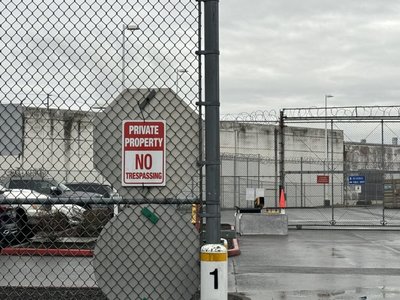Israeli Hostages' Families Express Anger as Gaza Strikes Resurface
Escalation of military action raises concerns over the safety of hostages held by Hamas.
Israel conducted a significant wave of airstrikes on Gaza late on March 17, 2025, marking the largest military operation since an agreed ceasefire with Hamas was established in January.
This offensive resulted in the deaths and injuries of at least 330 individuals, leading families of Israeli hostages to express grave concerns that their loved ones are now at increased risk.
Currently, 59 Israeli hostages are believed to be held in Gaza, with estimates suggesting that up to 24 of them may still be alive.
In response to the resumption of military actions, families have been voicing their fears and displeasure with the Israeli government, stating that the military pressure could complicate negotiations for their release.
They have organized a demonstration in Jerusalem, urging the public to support their cause.
The situation has prompted the Hostages and Missing Families Forum to issue a statement condemning the government's decision to renew military operations, claiming it jeopardizes the lives of the hostages.
The group stated, 'The greatest fear of families, hostages, and Israeli citizens has been realized.' They emphasized the urgency of their plight, asserting that further military actions could destroy chances of retrieving the hostages safely.
The strikes reportedly targeted homes and shelters across multiple locations in the Gaza Strip, resulting in significant casualties, including children.
Israeli Defense Minister Israel Katz announced the resumption of combat operations, reinforcing the government's commitment to ensuring the release of all hostages.
Katz declared, 'The gates of hell will open in Gaza' if hostages are not freed, a statement reflecting a more aggressive military posture.
Israeli Prime Minister Benjamin Netanyahu supported this escalation, stating that the government would act with 'increasing military force' in response to Hamas’s refusal to release hostages.
Acknowledging this change in approach, the White House confirmed it was briefed ahead of the airstrikes.
Contrarily, Hamas officials have criticized the renewed attacks, suggesting that Israel's actions amount to a unilateral termination of the ceasefire.
A spokesperson for Hamas questioned the integrity of the international community, framing the military assaults as violations against innocent civilians.
The military actions follow nearly two months of ceasefire between Israel and Hamas during which hundreds of hostages were exchanged for thousands of Palestinian prisoners.
However, tensions escalated when disagreements arose over the terms of a proposed extension of the ceasefire, leading to the current military engagement.
Additionally, humanitarian conditions in Gaza have reportedly deteriorated, with Israel halting aid deliveries and electricity supply to the region, affecting its nearly two million residents.
The UK Foreign Secretary was quoted expressing concern over potential violations of international law amidst Israel's actions while insisting on the necessity for humanitarian assistance to be restored.
Discussions had been ongoing following the ceasefire's first phase, with the U.S. facilitating negotiations.
However, ongoing disputes have stalled further dialogue, and Hamas's recent statements indicated a willingness to release certain hostages contingent upon Israel’s compliance with previous agreements.
The toll of the conflict since October 7, 2023, has been catastrophic, with estimates reporting over 46,584 Palestinian deaths and more than 109,731 injuries amid ongoing military operations.
This offensive resulted in the deaths and injuries of at least 330 individuals, leading families of Israeli hostages to express grave concerns that their loved ones are now at increased risk.
Currently, 59 Israeli hostages are believed to be held in Gaza, with estimates suggesting that up to 24 of them may still be alive.
In response to the resumption of military actions, families have been voicing their fears and displeasure with the Israeli government, stating that the military pressure could complicate negotiations for their release.
They have organized a demonstration in Jerusalem, urging the public to support their cause.
The situation has prompted the Hostages and Missing Families Forum to issue a statement condemning the government's decision to renew military operations, claiming it jeopardizes the lives of the hostages.
The group stated, 'The greatest fear of families, hostages, and Israeli citizens has been realized.' They emphasized the urgency of their plight, asserting that further military actions could destroy chances of retrieving the hostages safely.
The strikes reportedly targeted homes and shelters across multiple locations in the Gaza Strip, resulting in significant casualties, including children.
Israeli Defense Minister Israel Katz announced the resumption of combat operations, reinforcing the government's commitment to ensuring the release of all hostages.
Katz declared, 'The gates of hell will open in Gaza' if hostages are not freed, a statement reflecting a more aggressive military posture.
Israeli Prime Minister Benjamin Netanyahu supported this escalation, stating that the government would act with 'increasing military force' in response to Hamas’s refusal to release hostages.
Acknowledging this change in approach, the White House confirmed it was briefed ahead of the airstrikes.
Contrarily, Hamas officials have criticized the renewed attacks, suggesting that Israel's actions amount to a unilateral termination of the ceasefire.
A spokesperson for Hamas questioned the integrity of the international community, framing the military assaults as violations against innocent civilians.
The military actions follow nearly two months of ceasefire between Israel and Hamas during which hundreds of hostages were exchanged for thousands of Palestinian prisoners.
However, tensions escalated when disagreements arose over the terms of a proposed extension of the ceasefire, leading to the current military engagement.
Additionally, humanitarian conditions in Gaza have reportedly deteriorated, with Israel halting aid deliveries and electricity supply to the region, affecting its nearly two million residents.
The UK Foreign Secretary was quoted expressing concern over potential violations of international law amidst Israel's actions while insisting on the necessity for humanitarian assistance to be restored.
Discussions had been ongoing following the ceasefire's first phase, with the U.S. facilitating negotiations.
However, ongoing disputes have stalled further dialogue, and Hamas's recent statements indicated a willingness to release certain hostages contingent upon Israel’s compliance with previous agreements.
The toll of the conflict since October 7, 2023, has been catastrophic, with estimates reporting over 46,584 Palestinian deaths and more than 109,731 injuries amid ongoing military operations.











